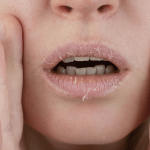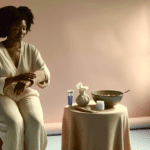The discussions about vaginal dryness needs to be out in the open.
It turns out that having a healthy vagina is key to women’s health as we age – so why are so many women (and doctors) having a difficult time discussing the topic of vaginal dryness? It’s time to gain knowledge, spread the word and share your newfound information with your sister, mother, daughter, friend or health professional, and be proactive about your health. Your health will thank you!
The majority of women after menopause – at least 85% – will have some symptoms of vaginal dryness. This statistic may come as a surprise, or even a wakeup call. Most women believe that they are pretty familiar with female health issues. Yet, they know very little about menopause and perimenopause, which typically begins in a woman’s 40s and is the 10 year transition into menopause.
Many women are under a misconception that menopause is just a “phase” or a transition time that they will “get through”. They don’t actually realize that we stay in menopause for the rest of our lives. In 2017, with an average life expectancy in North America of mid 80s for women, women now spend more than half our lives in perimenopause and menopause. Every woman of 40 years of age or older is affected, and yet they have so little knowledge about it!
The discussion about vaginal dryness is incredibly important because it’s one of the menopausal symptoms that worsens over time. Not to mention, vaginal dryness often leads to pain during intercourse. As we lose estrogen, “atrophy” or tissue loss occurs in the entire pelvic region – vaginal, labial, and urinary. This condition can lead to loss of structural integrity of the pelvic core and then incontinence and/or prolapse, which is protrusion of an organ (uterus or bladder) through the vagina.
Does this sound scary? Loss of sexual function is frequently accompanied by a toll on intimacy and relationships, which can lead to other health issues – sexual, psychological and emotional.
So if having a healthy vagina is key to women’s health as we age, why are so many women (and doctors) having a difficult time discussing the topic of vaginal dryness?
The primary reason is embarrassment. One study of 4,246 women has shown that 33% of American women who have vaginal discomfort (dryness, pain, or itching) do not talk about their symptoms even with a partner or friend. Only about 1/3 speak to their gynecologist and 22% talk to their general physician.
So what can women do to be proactive about our own health?
- Consult a pelvic health physiotherapist for an initial examination upon either a) having a child or b) turning 40. Learning about how our pelvic muscles work will help many women prevent future incontinence and prolapse. It could be as simple as learning to breathe properly to relax the pelvic floor and reduce chances of becoming incontinent. Women can also support their pelvic floor health by doing pelvic floor yoga.
- As soon as you experience any discomfort or pain with intercourse – especially after age 40 – treat this as an issue that needs to be resolved through the use of all natural products or by consulting your physician or pelvic health expert.
- Don’t wait to ask your health care provider about vaginal health. Raise the discussion with her or him by asking about what you can expect post-partum, in perimenopause or menopause.
- Most importantly, treat vaginal dryness and its symptoms as natural and part of the aging process. Accepting and dealing with the knowledge will help prevent vaginal dryness, pelvic floor problems and loss of sexual health.
- After menopause, maintaining some level of sexual activity becomes even more important for two key reasons: 1) Blood flow to the vaginal tract increases circulation and reduces the risk of atrophy and 2) The hormones your body depends on – which decline after menopause – are stimulated by sexual activity. Atrophy is not inevitable; nor is pelvic floor prolapse. Being proactive about pelvic health is important for every woman. Find what works for you to maintain a healthy lifestyle which includes pelvic health, sexual activity and satisfaction for years to come.
So talk to the mothers, sisters, friends, and health care professionals in our lives; with 85% of women affected, there is no room for a taboo, and together, we can contribute to improving women’s health for ourselves and future generations. Most importantly, speak to your daughters, and help them be prepared for this transitional time in their lives.








